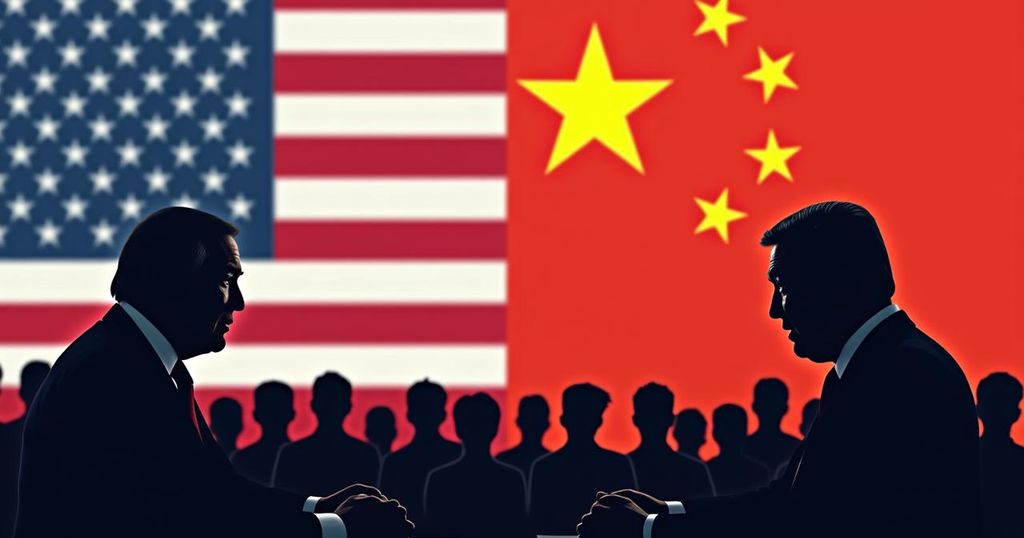Vance-Walz Debate Highlights China Relations Amidst Domestic Electoral Concerns

The debate between Senator J.D. Vance and Governor Tim Walz in New York emphasized domestic issues while prompting discussion on foreign policy, particularly concerning China. A CBS News poll indicated a narrow victory for Vance, who garnered 42 percent to Walz’s 41 percent. Walz criticized former President Trump’s China policy based on his own experiences, suggesting Trump would benefit from understanding the country first-hand.
The recent debate between Republican Senator J.D. Vance and Democratic Governor Tim Walz took place in New York and has illuminated the ongoing discourse regarding foreign policy within the context of domestic electoral issues. Polling data from a CBS News survey subsequently indicated that Senator Vance received a slight advantage in the debate, with 42 percent of respondents declaring him the victor, compared to 41 percent for Governor Walz, while 17 percent deemed the debate a tie. The focus of this debate was predominantly on domestic topics such as gun control, immigration, and economic policies. Nonetheless, discussions about China and the Middle East surfaced, particularly with Governor Walz leveraging his past experiences in China. He emphasized the value of his understanding of international relations, suggesting that former President Donald Trump’s viewpoint on China would have been markedly different had he participated in the educational trips Walz organized. The Governor stated, “I would make the case that Donald Trump should have come on one of those trips with us. I guarantee you he wouldn’t be praising Xi Jinping about Covid, and I guarantee you he wouldn’t start a trade war that he ends up losing.” These remarks have drawn attention to Walz’s prior connections with China, especially following his mention as a potential vice-presidential candidate alongside Kamala Harris. This debate is significant as it illustrates the intricate intertwining of foreign and domestic policy issues in the context of a crucial election cycle. The growing scrutiny of candidates’ international affiliations will undoubtedly play a role in shaping voter perceptions as they approach the polls.
The political landscape in the United States is increasingly defined by perceptions of foreign policy, particularly in relation to China, amid domestic challenges. The first joint debate between Senator J.D. Vance and Governor Tim Walz serves as a critical moment in the electoral campaign, where international issues are examined alongside pressing domestic concerns. Walz’s historical ties to China offer a lens through which voters can gauge candidates’ foreign policy tendencies, especially as debates on trade and international relations gain traction in the public discourse.
In conclusion, the Vance-Walz debate has highlighted the critical intersection of foreign and domestic policies during the lead-up to the election. Polling results suggest a slight preference for the Republican candidate, yet the insights shared by Governor Walz regarding his experiences in China may prove pivotal in shaping voter attitudes. As the election approaches, the candidates’ positions on international relations, particularly with China, will continue to be influential in voters’ decisions.
Original Source: www.scmp.com








